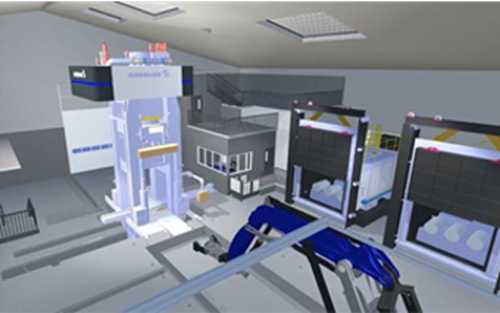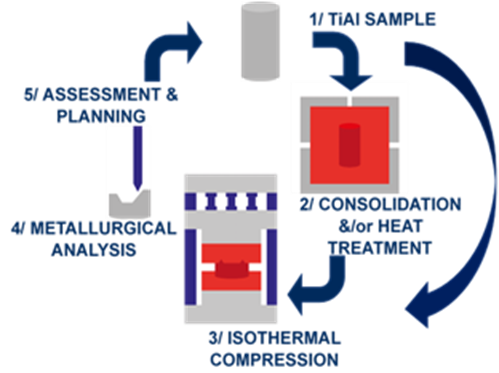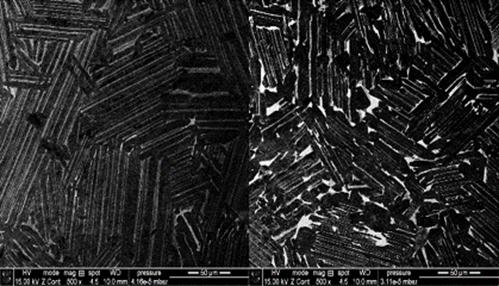
TIMETDevelopment of thermal mechanical processing routes to produce high integrity forged titanium aluminide components
Why Strathclyde

Before starting my PhD I worked in industry for three years and came across the AFRC a number of times at conferences and meetings. I always found them to be pro-active types, keen to work on projects and share knowledge with others, that's how I came across the doctorate opportunities at the University of Strathclyde.
Working in this kind of environment really appealed to me and being based at the AFRC we work alongside full-time staff who are experts in their field. Whatever the issue you have there's someone around that has seen it before. Equally the PhD and EngD students based on-site are a good sounding board for ideas in a working atmosphere that provides plenty of support when you need it.
Project Overview

There are ever increasing demands on automotive and aerospace engine manufacturers to develop systems with improved efficiency and reduced environmental footprint. Advanced designs are based on higher service temperatures, lighter weight, and higher operation speeds. If further advances are to be made in these areas, new classes of materials will be required. Intermetallics such as titanium aluminide offer these advantages. Now with industry acceptance, the material can be developed to optimise processing via advanced manufacturing platforms such as FutureForge, at the AFRC.
The aim of my project is to improve the forgeability of conventional, cast, titanium aluminide alloys by applying and developing thermomechanical processing techniques. These include hot isostatic pressing, homogenisation and cyclic heat treatments combined with multi-step isothermal forging for ingot breakdown. Through these processes the microstructure will be refined and controlled to produce high integrity, forged titanium aluminide stock ready for processing by high deformation processes, such as closed-die forging, potentially expanding the list of possible applications
Business Impact

Titanium aluminide materials fill an important property gap that lies between high temperature-high-density superalloys and low temperature-low-density titanium alloys. Titanium aluminide provides the compromise between the two. When considering high temperature applications such as automotive and aerospace engine components as well as power station turbines, titanium aluminides compare favourably to nickel superalloys and titanium alloys.
From our point of view the difficulty is in the processing of a material with low room temperature ductility, hence the drive to near net shape processing routes and applications away from potential damage from foreign objects.
For this materials' use to be expanded elsewhere in the aero-engine and other applications, easing processing is required. This aim will only be viable if the microstructural control and response to processing conditions is understood.
Researcher Experience

The aim of improving forgeability has come directly from discussions with industry. Having this clear aim from the outset is very engaging and makes experimental design easier. Six-monthly, in person presentations, to update industry supporters of the project and other researchers working in the forging team at the AFRC gives me the chance to present and discuss my work in a formal way, excellent practice for future conferences and viva.
Also more regular, informal contact through email and online technical presentations cover questions and decision making in greater detail.
